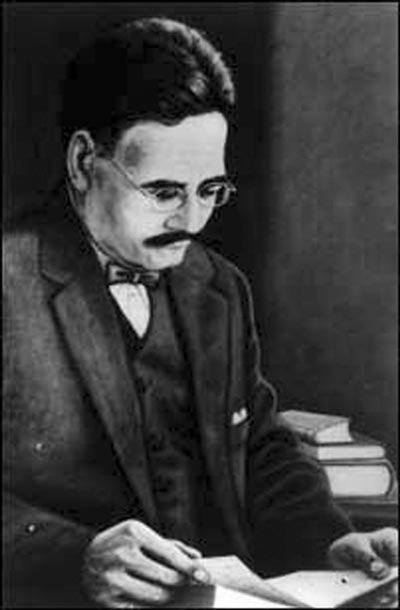
Iqbal is one of the finest urdu poets of the last century. He is perhaps most well known in India for his poem “Sarey jahan sey achha Hindostan hamara”. It is ironic that he is also considered as having sown the seeds of Pakistan since he asserted the need for an Islamic State in the north-west India (though under British rule) at the annual conference of the All India Muslim League in 1930.
Iqbal was born in Sialkot, Punjab, now in Pakistan, as Allama Muhammad Iqbal. In his early youth, he was taught by Maulana Mir Hasan, the reputed teacher of Arabian, Persian and Urdu, and then by Dr Thomas Arnold of Lahore Government College. A brilliant scholar, with a First Class First Master’s degree in Philosophy from Punjab University, he went to Trinity College, Cambridge, and later was awarded a Ph.D. degree by Munich University of Germany for his work entitled “The Development of Metaphysics in Persia”. In 1908, he also became a barrister.
On his return to India, he taught for a while in Lahore Government College, but left it when he realised that government service restricted his freedom of expression. He became a practising lawyer, but never made much money. He developed only a limited practice that kept him supplied with the ordinary requirements of life. Iqbal had started writing poetry in his student days at Lahore. He used to mail his poems to the noted Urdu poet Mirza Dagh in Hyderabad, who used to correct it and mail it back to him.
Before visiting England, Iqbal had been a Nationalist. On his return from England, he wrote poetry that was clearly Islamic. After the October Revolution in Russia in 1917, his poetry had socialistic strains. Iqbal wrote both in Persian and Urdu, his Urdu poetry first being published as a book only when Iqbal was 51.
In 1923, he received a knighthood from the British Government. Iqbal’s poetry was more philosophical than romantic.
In 1933, after returning from a trip to Spain and Afghanistan, Iqbal’s health deteriorated. He spent his final years working to establish the Idara Dar-ul-Islam, an institution where studies in classical Islam and contemporary social science would be subsidised, and advocating the demand for an independent Muslim state. Iqbal ceased practising law in 1934 and he was granted pension by the Nawab of Bhopal. After suffering for months from a series of protracted illnesses, Iqbal died in Lahore in 1938.

